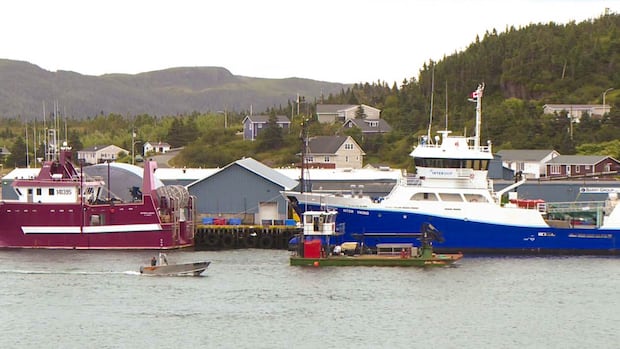Two main types of phytoplankton have been decreasing in biomass in the North Atlantic by two per cent each year for the past 60 years, a new study has found.
Dalhousie University researchers analyzed data collected over more than half a century to assess how two types of phytoplankton — diatoms and dinoflagellates — are responding to climate change.
The analysis found that while the makeup and distribution of phytoplankton varied in different parts of the North Atlantic, overall, there was a decrease over the period, from 1960 to 2017, except for the eastern and western continental shelves.
“Changes are a concern,” says Andrew Irwin, a professor in the department of mathematics and statistics at Dalhousie University and one of the authors of the study published this month in PLOS One, a peer-reviewed, open-access journal.
“It’s such an important part of our ecosystem that any change, especially a change we don’t fully understand, is of concern.”
Phytoplankton are tiny but mighty.
The microscopic organisms are the root of the ocean food web, feeding larger creatures such as zooplankton, which are then consumed by fish, which go on to feed mammals and birds.
They also play a key role in the planet’s carbon cycle, removing carbon dioxide from the atmosphere and sinking it to the bottom of the ocean when they die — thereby helping mitigate the effects of climate change.
Irwin says the evidence points toward climate change as the cause of the decrease in phytoplankton.
“It’s not an experiment. We’re observing things. So I can’t say for certain that’s the reason,” he says. “But our models suggest that our changes to the atmosphere, changes to the temperature of the Earth, are leading to this decline in biomass.”
Continuous Plankton Recorder
The data for the new study, conducted with colleagues in Dalhousie’s math and oceanography departments, came from a fascinating project that began in 1931 and has continued virtually unchanged for decades.
The Continuous Plankton Recorder is a sampler that is towed by ships in oceans around the world. Inside the torpedo-shaped casing is a roll of silk that slowly unwinds, capturing phytoplankton as the ship moves through the water. The rolls are preserved for the duration of the ship’s journey and then sent to laboratories for analysis.
The CPR has so far sampled more than seven million nautical miles.

Douglas Campbell, the Canada Research Chair in Phytoplankton Ecophysiology at Mount Allison University, called the CPR a “fascinating old-school approach.”
“It’s like steampunk technology,” says Campbell, who is a professor of biology at Mount Allison and who was not involved in the study. “But because it goes back so far, it’s this unparalleled window into what things were like over a long period of time and of course through a critical period of change.”
Study bucked expectations
Irwin says one limitation of the study is that the CPR’s silk is not able to grab smaller phytoplankton.
“The smaller phytoplankton that don’t get counted could be doing something very different,” he says. “We don’t know.”
Campbell says other research has found evidence that some smaller phytoplankton are becoming more abundant and dominant, which he says could be a concern over the long term, as they are not as high quality a food source and don’t sink carbon as well as larger ones.

Irwin says based on previous studies, he and his colleagues expected to find a shift toward dinoflagellates at the expense of diatoms. Dinoflagellates have lower nutritional concentrations and do not remove carbon from the atmosphere as efficiently as diatoms.
However, the data showed that diatom biomass actually grew in proportion to dinoflagellate biomass everywhere except in the Arctic area of the North Atlantic.
“The message there is that the ocean is complicated,” Irwin says. “It’s not just temperature, it’s not just one factor that’s going to tell us what’s going to happen.”






